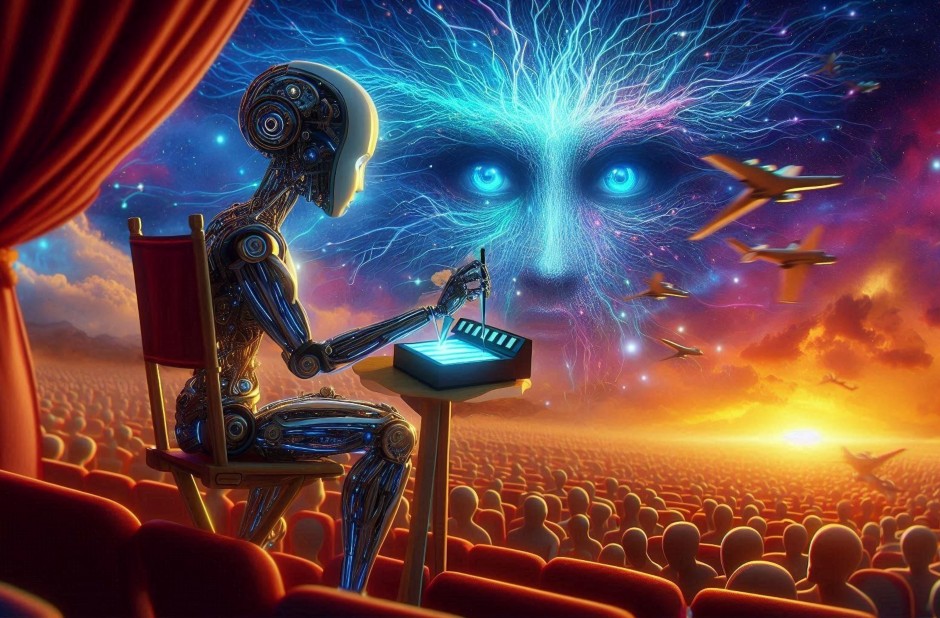In recent years, there has been a significant advancement in the field of Artificial Intelligence (AI) and Augmented Reality (AR). These technologies have become increasingly popular and have the potential to enhance virtual experiences in various fields such as gaming, education, healthcare, and...
How Neural Networks Assist in Writing Movie Scripts

In recent years, technology has revolutionized the world of entertainment, opening new possibilities for creators. The integration of advanced artificial intelligence into the realm of storytelling has begun to redefine the process of crafting narratives. Through sophisticated algorithms, AI tools are now capable of assisting in the generation of compelling and engaging plots, character arcs, and dialogue. This shift is creating a new dynamic in how scripts are conceived, offering an innovative approach for both experienced writers and newcomers alike.
By leveraging the power of these tools, writers can explore fresh ideas, break through creative blocks, and experiment with diverse genres and styles. The use of artificial intelligence has the potential to complement traditional methods of story creation, providing writers with valuable suggestions, accelerating the brainstorming process, and expanding their creative boundaries. As this technology evolves, it promises to enhance the writing experience and transform how narratives are developed in the entertainment industry.
How AI Enhances Scriptwriting Creativity
The integration of artificial intelligence into the world of storytelling has sparked a new wave of innovation. By offering dynamic tools that analyze patterns, generate ideas, and suggest improvements, AI provides writers with an enhanced creative process. It opens up fresh avenues for exploring complex narratives, character development, and dialogue, ultimately assisting in the creation of more engaging and original content. This technology is not meant to replace human creativity but to empower it, making the entire process faster and more efficient.
Unlocking New Possibilities for Writers
AI-driven tools offer writers the ability to break free from traditional limitations, sparking new ideas and directions that may not have been considered otherwise. By understanding structure and style, these systems can propose unique twists, suggest alternative plot developments, or even create unexpected character dynamics. This capability helps writers to think outside the box, encouraging experimentation and innovation while maintaining consistency in their work.
Enhancing Efficiency and Overcoming Writer's Block
One of the most significant challenges writers face is overcoming creative blocks. AI can help by providing suggestions based on a variety of inputs, quickly generating multiple options for a specific scene or dialogue. This assistance reduces the time spent on brainstorming and allows writers to focus on refining their concepts. With AI as a creative ally, the process becomes smoother, allowing writers to maintain momentum and flow without getting stuck on small details.

Exploring AI in Film Narrative Development
Artificial intelligence has become an invaluable asset in the creative field of storytelling, particularly in the development of film narratives. By analyzing vast amounts of data from previous works, AI can offer insights into structure, theme, and character progression, helping to shape more compelling and cohesive plots. These systems are capable of identifying patterns that might not be immediately obvious to human creators, providing a fresh perspective that enriches the storytelling process.
AI's Role in Plot Structuring
When constructing a narrative, the flow of events and the pacing are crucial for maintaining audience engagement. AI can assist in refining story arcs by suggesting the optimal placement of key events or by adjusting tension and release throughout the plot. By simulating different outcomes, AI allows creators to explore various narrative paths and select the one that best serves the overall direction of the story. This ability to foresee potential developments before they are written out helps ensure a tighter, more engaging narrative.
Creating Complex Characters with AI
The depth of a character can make or break a story, and AI can play a pivotal role in building multi-dimensional personas. By examining successful characters from a wide array of genres, AI can offer suggestions for traits, motivations, and emotional journeys. These tools help writers to avoid clichés and develop unique, believable characters that resonate with audiences. AI also facilitates the creation of complex relationships and interactions between characters, enriching the emotional depth of the narrative.
Benefits of Machine Learning for Screenwriters
Machine learning technologies offer numerous advantages for those involved in storytelling, particularly for screenwriters. By leveraging advanced algorithms, these systems can analyze patterns in successful narratives, identify emerging trends, and suggest innovative ideas. This integration of technology allows writers to experiment with new concepts while maintaining coherence in their work. Ultimately, machine learning can streamline the creative process, making it more efficient and effective.
Improved Creativity and Innovation
Machine learning tools encourage creative exploration by offering suggestions and generating ideas that a writer may not have considered. These systems can analyze a broad range of data, from plot developments to character dynamics, and propose unique variations, helping writers break free from conventional approaches. By presenting diverse possibilities, machine learning empowers writers to expand their creative horizons and experiment with unconventional narratives or character relationships.
Enhanced Productivity and Workflow
One of the most valuable benefits of machine learning is its ability to increase productivity. The technology can reduce the time spent on repetitive tasks such as brainstorming ideas or refining dialogue. With automated suggestions and quick feedback, writers can focus more on the aspects of storytelling that require their personal touch, such as emotional depth and thematic exploration. This efficiency allows for a smoother workflow, reducing the pressure of tight deadlines and improving the overall quality of the final work.



